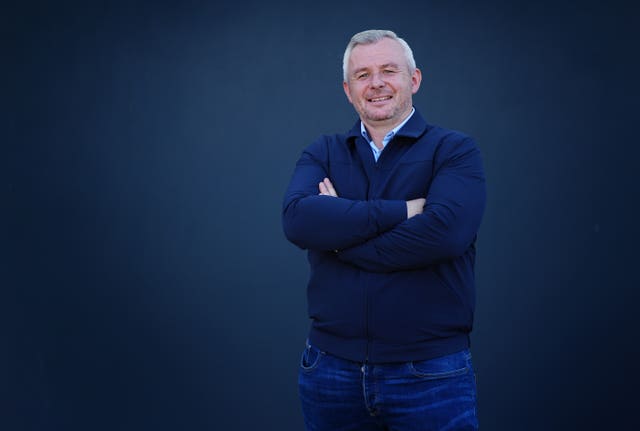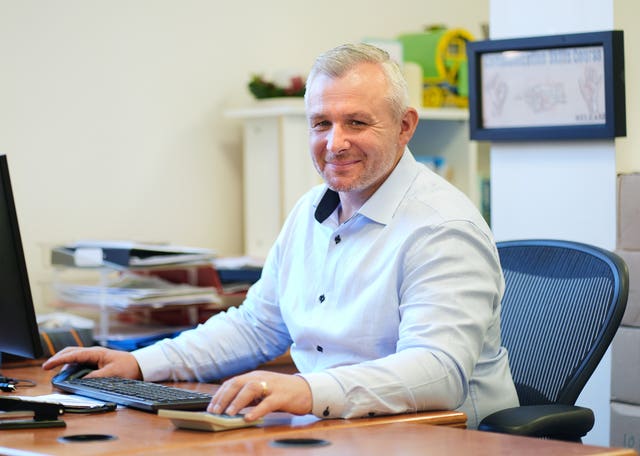Dublin man helping former prisoners start again with a clean slate
Cleaning services boss Paul Donoghue employs ex-inmates and recovering addicts, giving them an opportunity to reintegrate in society.

A Dublin man who spent most of his adult life in and out of jail is now helping former prisoners start again with a clean slate.
Paul Donoghue, a social enterprise manager and founder of New Creation Cleaning Services, employs ex-inmates and recovering addicts, giving them an opportunity to reintegrate in society.
The not-for-profit company offers cleaning services for different commercial entities as well as domestic properties.

Some 10 years ago, he was released from jail and faced major barriers to finding work.
“I didn’t really have any trade or experience to put on a CV because of addiction issues,” he said.
“I had to learn how to function as a husband and a father.
“Though I was able to successfully find employment after a couple of years, it was still a challenge. I saw the obstacles and barriers of finding employment.”
Almost two years ago, he established New Creation Cleaning Services through the Social Enterprise sector and provides work for people who have been through the criminal justice system.
“The reason for its existence is to give opportunity and training and employment to guys who would have difficulties finding work, whether it be because they have been through the criminal justice sector, whether they’re coming out from addiction recovery, and even those who would maybe not be able to enter employment for whatever reasons.
“And it includes those who are being marginalised or for not having work experience.
“We are set up to give support, membership and training for those who might find it difficult to gain employment otherwise.
“We hope to give the initial support to boys, whether it’s upon release, they need some support, reintegrate and mentorship, whether it’s in relation to relationship building, or skill development, upskilling.
“They have to understand what is needed to be able to hold down a job and then be aware of the different skill sets that they might be lacking.”

The business, which is in its second year, does not receive Government funding and currently employs eight people.
Mr Donoghue added: “We have to be very careful in recruiting, because without the turnover of work we can’t sustain staff, and that is a balance we’re trying to find.
“We don’t receive public funding and we work on a not-for-profit basis. While we have a social mission, we have to operate like every other business.
“We take on boys based on our ability to support them and mentor them into employment.
“A lot of boys, when they come out from long-term imprisonment, they have issues with isolation, there’s been a breakdown in relationships.
“There has been a lack of experience of working and functioning in society.
“They have lived in a different environment in prison.
“Our initial conversation is that this is a job like every other job, and you will be required to work like everyone else, but they will also receive additional supports around their relationships or court dates or see sponsors who are involved in their lives.
“We have to trade and compete with other cleaning service companies out there, and we can’t go in and win contracts based on giving people opportunities. It’s a fine balance.”
He added: “If these boys have a meaningful job and they have a sense of wellbeing and purpose, it can prevent reoffending.
“There’s a personal motivation for me. I enjoy seeing boys succeed and I really do it from a passion, and it’s more a vocation more than a job.”
John Logan, chief executive of Social Enterprise in Ireland, said there are around 4,300 social enterprises across Ireland.
They provide services including advocacy, member benefits and community development.
Social enterprises are in every community in the country.
They are businesses that trade but are set up for social impact and all the profits go back into the social mission of the organisation.
A lot of the social enterprises work with people who come out of the criminal justice system.
“They might have addiction issues and what they’re looking for, really, is mentoring and support, a bit of routine and ideally employment.
“Research shows that 81% of them feel that the fact that they come out of the criminal justice system makes them very unlikely to be given the opportunity to get into valuable work.
“We say ‘We can take you on’.
“Some of the organisations make outdoor furniture, they are given monitoring and training and sense of purpose as well as flexibility.
“The stigma prisoners feel after they have been released isn’t based on how long a sentence they have served. It can be a year or eight or 10 years, the stigma remains.”





